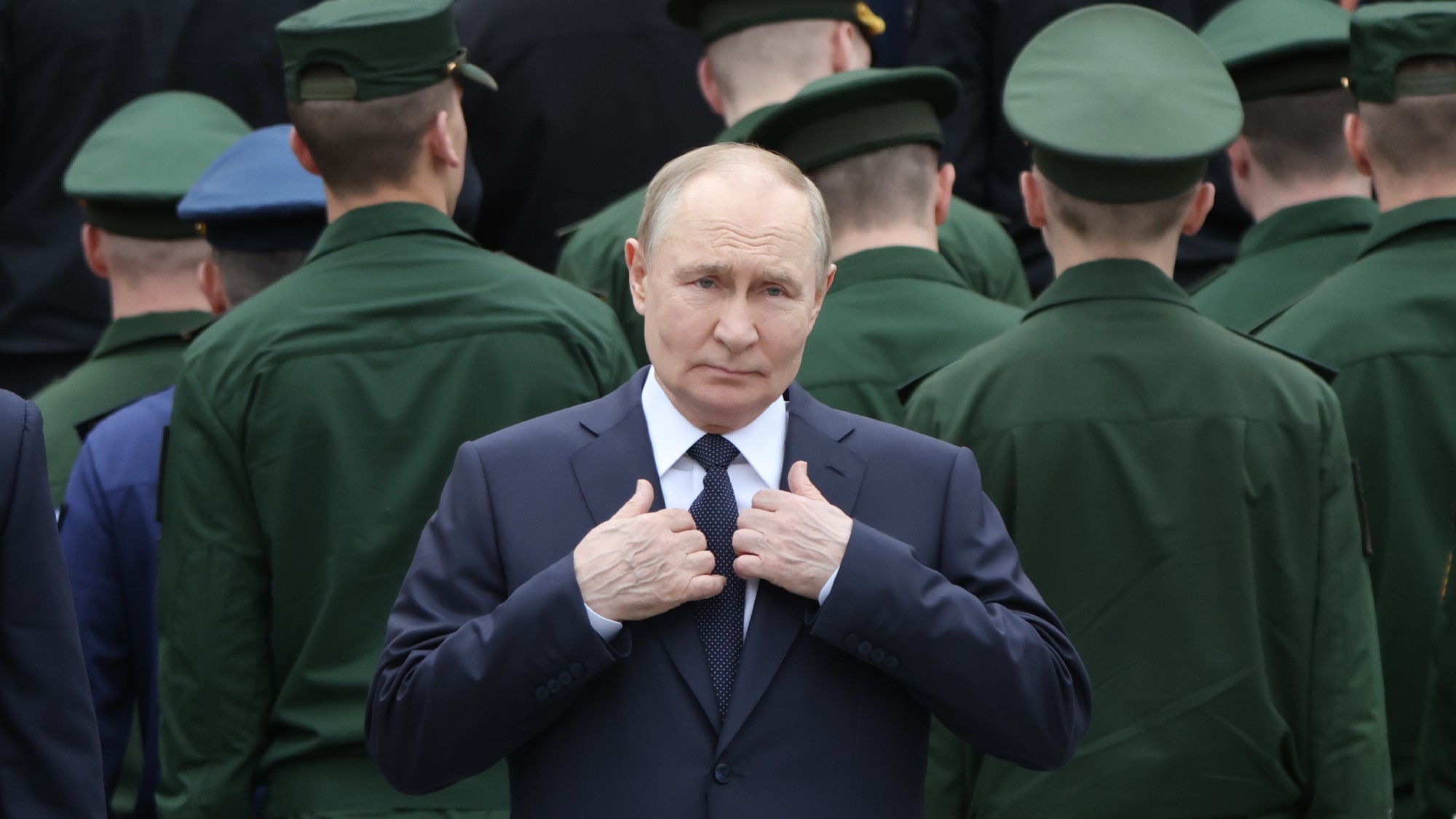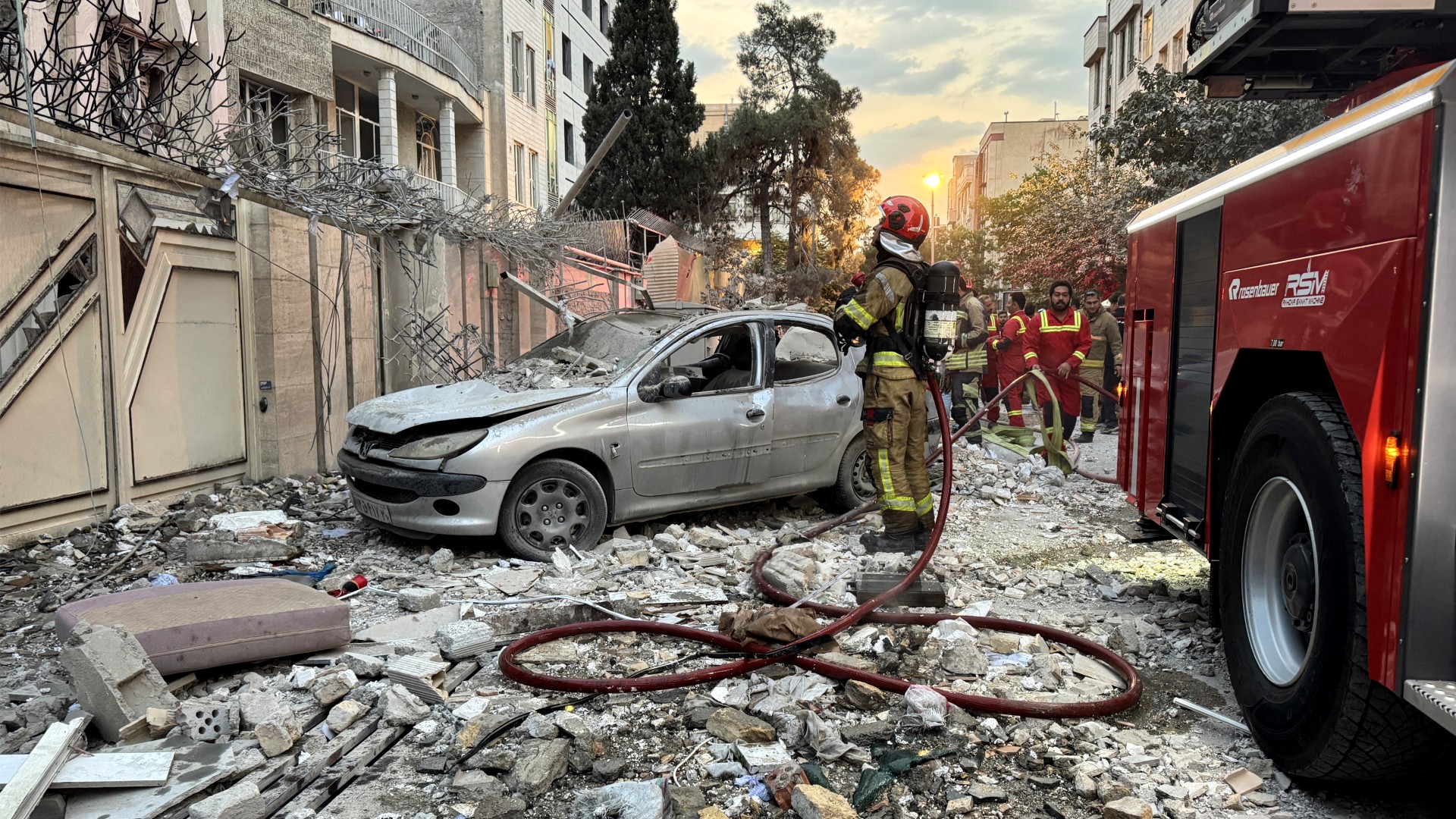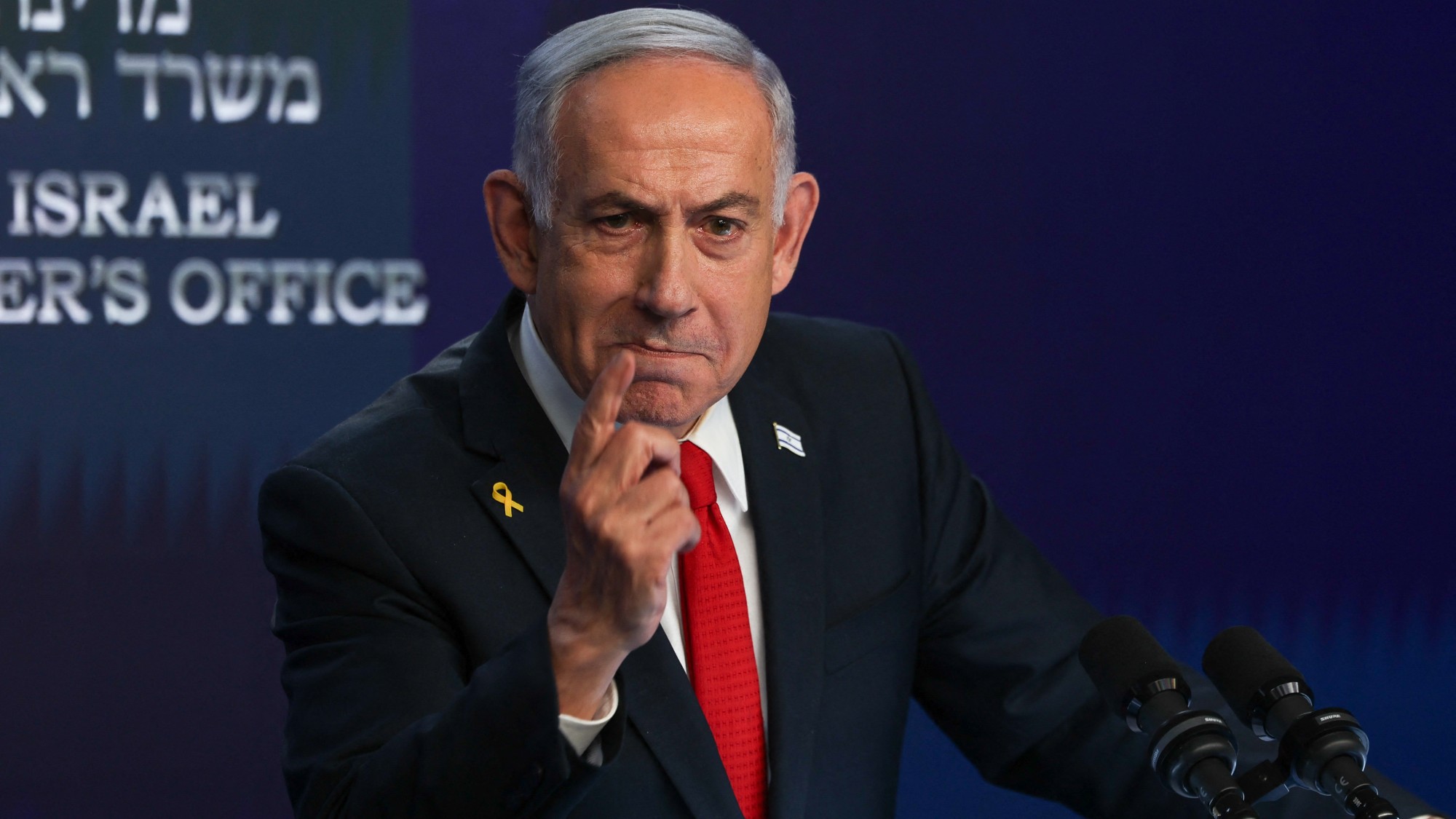What a US war with Iran might look like
Senior Washington figures believe their nation may be heading towards another all-out armed conflict

A free daily email with the biggest news stories of the day – and the best features from TheWeek.com
You are now subscribed
Your newsletter sign-up was successful
The ongoing diplomatic crisis between the US and Iran has triggered comparisons with America’s march into war against Saddam Hussein’s regime almost two decades ago.
The Guardian’s Washington correspondent David Smith claims that the growing tensions with Tehran echo the “unstoppable momentum towards invading Iraq” back in late 2002. Democratic congressman Chris Murphy agrees, tweeting that “the same people cheering on Trump’s reckless, illogical escalation to war with Iran were the ones telling us that democracy would boom across the Middle East as soon as our cake walk invasion of Iraq was done”.
Following Iran’s missile attack on US troops in Iraq this week, in retaliation for the assassination of top general Qasem Soleimani, a growing number of senior figures in Washington are voicing concerns that their nation could be walking into a full-scale armed conflict.
The Week
Escape your echo chamber. Get the facts behind the news, plus analysis from multiple perspectives.

Sign up for The Week's Free Newsletters
From our morning news briefing to a weekly Good News Newsletter, get the best of The Week delivered directly to your inbox.
From our morning news briefing to a weekly Good News Newsletter, get the best of The Week delivered directly to your inbox.
But just what might that look like?
Military might
Iran’s military forces total roughly 545,000 active personnel and 350,000 reserve personnel, including about 125,000 men in the Islamic Revolutionary Guard Corps (IRGC), according to Military Times.
But these figures are dwarfed by those of the US, which has a total of 1.3 million active duty military service personnel and more than 800,000 reserve forces, reports US government-focused magazine Governing.
A free daily email with the biggest news stories of the day – and the best features from TheWeek.com
And US forces in the Middle East are reinforcing their outposts, bases and airfields, with the Pentagon sending around 4,500 additional troops to the region to join the roughly 50,000 already stationed there, reports The New York Times.
US military assets include “early warning aircraft, maritime patrol planes, Patriot air and missile defence batteries, B-52 bombers, a carrier strike group, armed Reaper drones and other engineering and support personnel”, the newspaper adds.
Outbreak of war
The US strategy would almost certainly be to beat Iran into submission quickly, using air and naval power to overwhelm Iranian defences and resolve.
The US “would bomb Iranian ships, parked warplanes, missile sites, nuclear facilities and training grounds, as well as launch cyberattacks on much of the country’s military infrastructure,” says Vox.
But experts say Iran would be unlikely to surrender. Michael Hanna, a Middle East specialist at the Century Foundation in New York, told the newspaper: “It’s very unlikely that the Iranians would capitulate. It’s almost impossible to imagine that a massive air campaign will produce the desired result.
“It’s only going to produce escalation, not surrender.”
What the US is likely to do
There could be no surprise invasion of Iran like that of Iraq in 2003.
Private intelligence firm Stratfor says that Iran “is a fortress”, with the country’s borders made up of mountain ranges, deserts, and well-protected swamplands at the meeting of the the Tigris and Euphrates rivers.
And Ankara is unlikely to let the US go through neighbouring Turkey to reach Iran, just as it refused the superpower’s request in 2003 to use Turkish territory as a launchpad from which to attack Iraq.
“Surrounded on three sides by mountains and on the fourth by the ocean, with a wasteland at its centre, Iran is extremely difficult to conquer,” concludes Stratfor.
To mount a successful invasion of Iran, the US would need around 1.6 million troops, according to military experts.
“You could probably topple the Iranian government with a lot fewer troops,” says The Washington Post. “But if you leave immediately afterward, as [now-national security adviser John] Bolton favoured doing in Iraq, the result could be either Libya-style chaos or the emergence of a new anti-American regime.”
Iran’s likely tactics
Tehran can’t match the military might of its enemy, but it can cause chaos for the US and its allies throughout both the region and rest of the world, orchestrating proxy attacks on military targets, diplomats and even civilians.
Last year, Iranian drone strikes targeted oil facilities in Saudi Arabia. Tehran has also launched success cyberattacks against Saudi Aramco and various major US banks.
“The Iranian strategy would be to avoid, where possible, direct conventional force-on-force operations,” says retired Marine Lieutenant General Vincent Stewart, formerly of US Cyber Command, in national security magazine The Cipher Brief.
“They would attempt to impose cost on a global scale, striking at US interests through cyber-operations and targeted terrorism with the intent of expanding the conflict, while encouraging the international community to restrain America’s actions,” he continues.
How other countries might react
Even if the US and Iran sign up to a full-blown war, neither side is likely to win significant support from the international community.
European nations - including the UK - would be reluctant to get dragged into another messy armed conflict that would cost lives and use significant resources. They would also be wary of the inevitable stream of refugees into Europe that a war with Iran would trigger.
Israel, in particular, would also worry about being targeted by Iranian proxy groups. Hezbollah could attack Israel with rockets just as it did in 2006, in attacks that killed dozens of civilians.
Western adversaries such as Russia and China - both sympathetic to Iran - would also be likely to try to prevent a conflict that could work against their interests. China relies on goods traveling through the Strait of Hormuz, which would probably be a flashpoint in any conflict.
Both countries have the power of veto at the UN Security Council, which means “they could ruin any political legitimacy for the war that the US may aim to gain through that body”, says Vox.
-
 How the FCC’s ‘equal time’ rule works
How the FCC’s ‘equal time’ rule worksIn the Spotlight The law is at the heart of the Colbert-CBS conflict
-
 What is the endgame in the DHS shutdown?
What is the endgame in the DHS shutdown?Today’s Big Question Democrats want to rein in ICE’s immigration crackdown
-
 ‘Poor time management isn’t just an inconvenience’
‘Poor time management isn’t just an inconvenience’Instant Opinion Opinion, comment and editorials of the day
-
 Taiwan eyes Iron Dome-like defence against China
Taiwan eyes Iron Dome-like defence against ChinaUnder the Radar President announces historic increase in defence spending as Chinese aggression towards autonomous island escalates
-
 The mission to demine Ukraine
The mission to demine UkraineThe Explainer An estimated quarter of the nation – an area the size of England – is contaminated with landmines and unexploded shells from the war
-
 How long can Nato keep Donald Trump happy?
How long can Nato keep Donald Trump happy?Today's Big Question Military alliance pulls out all the stops to woo US president on his peacemaker victory lap
-
 How far would Russia go for Iran?
How far would Russia go for Iran?Today's Big Question US air strikes represent an 'embarrassment, provocation and opportunity' all rolled into one for Vladimir Putin
-
 How the Israel-Iran conflict broke out
How the Israel-Iran conflict broke outThe Explainer Israel's strike on Iran's nuclear and missile programmes was years in the planning
-
 Will the UK get involved in the Israel-Iran conflict?
Will the UK get involved in the Israel-Iran conflict?Today's Big Question Keir Starmer is 'walking a tightrope' in helping Israel limit Tehran's nuclear capabilities without being seen to do so
-
 What happens if Israel attacks Iran?
What happens if Israel attacks Iran?TODAY'S BIG QUESTION Israel is 'ready to strike' and Tehran has plans for counterattacks against the US as nuclear talks appear deadlocked
-
 How will the MoD's new cyber command unit work?
How will the MoD's new cyber command unit work?Today's Big Question Defence secretary outlines plans to combat 'intensifying' threat of cyberattacks from hostile states such as Russia